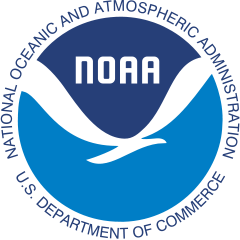September 10th, 2021
There is a meme usually making the rounds on the Internet, entitled: Midwestern dads during a tornado warning. It typically involves a man standing in his backyard or mowing the lawn, while casually staring a giant funnel cloud coming his way.

“I can definitely relate to that,” Tom Delworth said.
As a boy growing up in the Midwest, he developed a fascination for extreme weather, which ultimately led him to pursue a groundbreaking career in atmospheric and oceanic sciences.
Honoring this lifelong work, the American Geophysical Union (AGU) presented Delworth with the prestigious Bert Bolin Award and Lecture to take place at its Fall 2021 meeting.
A Senior Scientist at the National Oceanic and Atmospheric Administration’s Geophysical Fluid Dynamics Laboratory, Delworth is also a lecturer at Princeton University. His research is known for advancing the scientific frontiers involving the role of oceans in the global climate system, specifically through long-term global climate modeling.
The AGU presents the award annually, recognizing groundbreaking research or leadership in global environmental change through cross-disciplinary research conducted over the past 10 years. Delworth remains a Web of Science Highly Cited Researchers, a status his work has held since 2014. It recognizes the top 1% realm of scientists with the most frequently cited papers in the field.
“Just being mentioned in the same breath as Burt Bolin is an honor,” Delworth said. “He is a legend in the field.”

Bolin was a Swedish meteorologist who served as the first chairman of the Intergovernmental Panel on Climate Change, which released its Sixth Assessment Report this week on the state of global weather patterns.
Not only did Bolin have a knack for the field, Delworth said, he was also a leader in bringing scientists together to study global climate change.
“Burt Bolin was a very holistic viewer of the climate system and how the pieces fit together,” Delworth said. “That’s what I strive to do as well, looking at how the pieces come together to form a coherent whole.”
At GFDL, he studies the global coupled climate system in timescales from a few seasons to a few decades. The research looks at the natural variability of the climate that would occur without human influence, as well as how the climate system is responding to the changing composition of the atmosphere with increasing greenhouse gases and aerosols.
“The ocean is big. It covers 70 percent of the Earth. It stores a lot of heat and it moves heat around. If the Atlantic Ocean is warm, how does that impact climate? If the Arctic sea ice is melting, what does that do?,” Delworth said. “We’re looking at how the ocean can impact the climate system – not just over the ocean, but also how it affects weather, extreme events, and even drought over continental areas where people live.”
In terms of the lecture Delworth will present at the event – in whatever hybrid form it takes – he hopes to present a mix of research and philosophy.
“It’s an opportunity to talk about your research, but also perhaps about future directions of the field,” he said.


